Soil Health and THCA Production: Oregon's Regenerative Practices
The foundation of exceptional cannabis cultivation lies beneath the surface, where an intricate web of soil organisms, nutrients, and biological processes determines the quality and potency of the final product. In Oregon's thriving hemp industry, forward-thinking cultivators are embracing regenerative agriculture principles to produce premium THCA flower that rivals traditional cannabis in both quality and therapeutic potential. This comprehensive exploration examines how soil health hemp cultivation practices are revolutionizing the industry and establishing new standards for sustainable cannabis production.
The Science Behind Soil Health and Cannabinoid Production
Understanding the relationship between soil health and cannabinoid production requires delving into the complex interactions between plant roots, soil microorganisms, and nutrient cycling. Healthy soil serves as more than just a growing medium; it functions as a living ecosystem that directly influences plant metabolism, stress responses, and secondary metabolite production, including THCA (tetrahydrocannabinolic acid), the precursor to THC.
Research has consistently demonstrated that plants grown in biologically active soils exhibit enhanced terpene profiles, increased cannabinoid concentrations, and improved overall plant vigor. This occurs because diverse soil microbial communities facilitate nutrient uptake, protect against pathogens, and trigger beneficial stress responses that stimulate cannabinoid synthesis. The symbiotic relationship between hemp roots and mycorrhizal fungi, for instance, extends the plant's root system exponentially, improving access to phosphorus and other essential nutrients critical for THCA production.
Regenerative agriculture THCA production focuses on building soil organic matter, which serves as both a nutrient reservoir and a habitat for beneficial microorganisms. As organic matter decomposes, it releases nutrients in forms readily available to plants while simultaneously improving soil structure, water retention, and biological activity. This creates optimal conditions for hemp plants to express their full genetic potential, resulting in higher THCA concentrations and more complex terpene profiles.
Oregon's Soil Management Revolution
Oregon has emerged as a leader in sustainable hemp cultivation, with innovative farmers implementing comprehensive Oregon soil management strategies that prioritize long-term soil health over short-term yields. These practices recognize that soil is a finite resource requiring careful stewardship to maintain productivity across multiple growing seasons.
The state's diverse microclimates and soil types provide unique opportunities for implementing region-specific soil management approaches. From the volcanic soils of the Cascade Range to the alluvial deposits of the Willamette Valley, Oregon cultivators are adapting regenerative practices to local conditions while maintaining consistent quality standards for THCA flower production.
Key components of Oregon's soil management revolution include comprehensive soil testing protocols that extend beyond basic NPK analysis to include biological indicators such as microbial biomass, enzyme activity, and organic matter quality. This holistic approach enables cultivators to make informed decisions about amendments, cover cropping, and cultivation timing that optimize both soil health and cannabinoid production.
Water management represents another critical aspect of Oregon's regenerative approach. Implementing efficient irrigation systems, rainwater harvesting, and soil moisture monitoring ensures that plants receive adequate hydration without compromising soil structure or promoting anaerobic conditions that can harm beneficial microorganisms.
The Living Soil Approach to THCA Cultivation
Living soil THCA cultivation represents a paradigm shift from conventional growing methods that rely heavily on synthetic inputs. This approach focuses on creating and maintaining soil ecosystems that function similarly to those found in nature, with diverse microbial communities driving nutrient cycling and plant health.
The foundation of living soil systems lies in understanding the soil food web, a complex network of interactions between bacteria, fungi, protozoa, nematodes, arthropods, and larger organisms. Each component plays a specific role in nutrient cycling, with bacteria and fungi serving as primary decomposers, while protozoa and nematodes regulate microbial populations and release nutrients in plant-available forms.
Creating living soil begins with establishing diverse microbial communities through the addition of compost, worm castings, and other organic amendments rich in beneficial microorganisms. These materials provide both nutrients and inoculation sources for establishing healthy soil biology. Regular applications of compost tea, containing concentrated populations of beneficial bacteria and fungi, further enhance microbial diversity and activity.
The no-till philosophy central to living soil systems protects soil structure and maintains fungal networks that are easily disrupted by mechanical cultivation. Instead of tilling, cultivators use cover crops, mulching, and targeted amendments to improve soil conditions while preserving the delicate biological relationships that support plant health.
Plant selection and rotation strategies in living soil systems consider not only the target crop but also the soil health benefits provided by companion plants and cover crops. Nitrogen-fixing legumes, dynamic accumulators that mine deep soil nutrients, and plants that support beneficial insects all contribute to the overall health and productivity of the soil ecosystem.
Microbiome Management in Hemp Cultivation
The plant microbiome, consisting of bacteria, fungi, and other microorganisms living in and around plant tissues, plays a crucial role in plant health, nutrient uptake, and stress tolerance. In microbiome hemp cultivation, understanding and managing these microbial communities has become essential for optimizing THCA production and plant performance.
Beneficial soil bacteria, particularly plant growth-promoting rhizobacteria (PGPR), colonize hemp root surfaces and provide numerous benefits including enhanced nutrient uptake, hormone production, and pathogen suppression. These bacteria can solubilize phosphorus, fix nitrogen, and produce siderophores that improve iron availability, all of which contribute to improved plant nutrition and cannabinoid production.
Mycorrhizal fungi form perhaps the most important symbiotic relationship in hemp cultivation, with these fungi extending far beyond the root zone to access nutrients and water unavailable to plant roots alone. The fungal networks also facilitate communication between plants and can help coordinate responses to environmental stresses that may trigger increased THCA production.
Managing the hemp microbiome requires careful attention to soil conditions, irrigation practices, and input selection. Synthetic pesticides and fungicides can dramatically reduce microbial diversity, while organic amendments and biological inoculants promote beneficial microbial communities. Regular soil testing for biological indicators helps cultivators monitor microbiome health and adjust management practices accordingly.
Fermented plant extracts, containing diverse microbial communities and bioactive compounds, have shown promise for enhancing the hemp microbiome while providing additional plant nutrition. These extracts can be applied as soil drenches or foliar sprays to introduce beneficial microorganisms and support existing microbial populations.
Building Organic Matter for Enhanced Hemp Production
Organic matter hemp cultivation recognizes that soil organic matter serves as the foundation for biological activity, nutrient storage, and soil structure. Increasing organic matter content improves virtually every aspect of soil function while providing long-term benefits for hemp production quality and sustainability.
Organic matter consists of living organisms, fresh plant and animal residues, and humus, the stable end product of decomposition. Each component contributes differently to soil function, with fresh organic materials providing readily available nutrients and energy for soil organisms, while humus improves soil structure and provides slow-release nutrition.
Composting represents one of the most effective methods for building soil organic matter while recycling organic waste materials. High-quality compost provides balanced nutrition, improves soil structure, and introduces beneficial microorganisms essential for plant health. The composting process also stabilizes nutrients, reducing the risk of nutrient leaching while ensuring sustained nutrient availability throughout the growing season.
Cover cropping offers another powerful tool for building organic matter while providing additional benefits such as nitrogen fixation, soil protection, and weed suppression. Strategic cover crop selection can target specific soil improvement goals, such as increasing organic matter in surface soils or improving subsoil structure through deep-rooted species.
Green manures, crops grown specifically for incorporation into the soil, provide rapid organic matter inputs while allowing precise control over nutrient timing and availability. Fast-growing crops like buckwheat or crimson clover can be seeded, grown, and incorporated within a single season, providing immediate benefits for subsequent hemp plantings.
Mulching with organic materials serves the dual purpose of protecting soil from erosion and temperature extremes while slowly decomposing to add organic matter. Straw, wood chips, and compost-based mulches all contribute to soil organic matter while reducing irrigation needs and suppressing weeds.
Soil Biology and THCA Production Optimization
The relationship between soil biology THCA production and final product quality represents one of the most fascinating aspects of regenerative hemp cultivation. Soil biological activity directly influences plant stress responses, nutrient uptake patterns, and secondary metabolite production, all of which affect THCA concentrations and terpene profiles.
Beneficial soil fungi, particularly arbuscular mycorrhizal fungi, have been shown to increase plant tolerance to various stresses including drought, salinity, and pathogen pressure. These stress responses often trigger increased production of defensive compounds, including cannabinoids and terpenes, resulting in higher-potency final products.
Soil bacterial communities influence plant hormone production and can trigger systemic resistance responses that enhance plant immunity while potentially increasing cannabinoid production. Certain bacterial strains produce compounds that directly stimulate secondary metabolite synthesis, offering opportunities for targeted microbial inoculation to enhance THCA production.
The carbon-to-nitrogen ratio in soil organic matter affects decomposition rates and nutrient release patterns, which in turn influence plant growth and cannabinoid production. Maintaining optimal C:N ratios through strategic organic matter additions ensures steady nutrient availability while supporting diverse microbial communities.
Soil pH significantly affects nutrient availability and microbial community composition, with most hemp cultivars performing best in slightly acidic to neutral soils (pH 6.0-7.0). Regular pH monitoring and adjustment using organic amendments help maintain optimal conditions for both plant growth and soil biological activity.
Enzyme activity in soils serves as an indicator of biological health and nutrient cycling capacity. Soils with high enzyme activity typically support better plant nutrition and more robust microbial communities, contributing to improved hemp quality and THCA production.
Sustainable Soil Practices for Long-term Success
Implementing sustainable soil practices requires a long-term perspective that balances immediate production goals with soil health maintenance and improvement. These practices recognize that soil degradation can occur rapidly but restoration requires sustained effort over multiple growing seasons.
Crop rotation planning considers both the nutritional needs of hemp and the soil health benefits provided by rotation crops. Including nitrogen-fixing legumes, deep-rooted crops that improve subsoil conditions, and crops with different nutrient requirements helps maintain soil fertility while breaking pest and disease cycles.
Integrated pest management (IPM) strategies prioritize biological control methods that support beneficial organisms while managing pest populations. This approach reduces reliance on synthetic pesticides that can harm soil biology while building more resilient agroecosystems.
Water conservation practices, including drip irrigation, mulching, and rainwater harvesting, reduce pressure on water resources while maintaining optimal soil moisture conditions for plant growth and microbial activity. Proper water management also prevents soil erosion and nutrient leaching that can degrade soil quality over time.
Nutrient management planning ensures that soil fertility needs are met through organic amendments and biological processes rather than synthetic fertilizers that can disrupt soil biology. Regular soil testing guides amendment decisions while monitoring helps track soil health improvements over time.
Record keeping and monitoring systems track soil health indicators, input costs, and production outcomes to evaluate the effectiveness of sustainable practices and guide future management decisions. This data-driven approach enables continuous improvement of soil management strategies.
Carbon Sequestration Through Hemp Cultivation
Carbon sequestration hemp cultivation offers significant environmental benefits while improving soil health and THCA production quality. Hemp's rapid growth and extensive root system make it particularly effective at capturing atmospheric carbon and storing it in soil organic matter.
Hemp plants can sequester substantial amounts of carbon both above and below ground, with root biomass contributing significantly to soil carbon storage. The deep taproot system of hemp can extend several feet into the soil profile, depositing carbon at depths where it remains stable for extended periods.
No-till cultivation practices enhance carbon sequestration by preventing soil disturbance that releases stored carbon to the atmosphere. Maintaining soil structure and fungal networks preserves existing carbon stocks while creating conditions favorable for additional carbon storage.
Cover cropping between hemp production cycles maintains living roots in the soil year-round, supporting continuous carbon inputs and microbial activity. Diverse cover crop mixtures maximize carbon sequestration potential while providing additional soil health benefits.
Composting organic waste materials for use in hemp cultivation creates stable carbon compounds while recycling nutrients that would otherwise be lost. High-quality compost can sequester carbon for decades while improving soil structure and biological activity.
Agroforestry integration, where hemp is grown in combination with trees or perennial crops, maximizes carbon sequestration potential while creating diverse production systems that support multiple revenue streams and enhanced environmental benefits.
Healthy Soil Practices Across Oregon
Healthy soil Oregon initiatives have gained momentum as cultivators recognize the connection between soil health and crop quality. State programs and farmer networks share research findings, best practices, and success stories that accelerate adoption of regenerative practices across the hemp industry.
University extension programs provide soil testing services, educational workshops, and research support that help farmers implement science-based soil health improvements. These programs translate academic research into practical applications that benefit commercial hemp operations.
Farmer-to-farmer networks facilitate knowledge sharing and peer learning opportunities that accelerate adoption of successful soil health practices. These networks often organize field days, demonstration plots, and collaborative research projects that benefit the entire hemp community.
Economic incentive programs reward farmers for implementing practices that improve soil health and environmental outcomes. These programs help offset the initial costs of transitioning to regenerative practices while providing long-term benefits for both farmers and the environment.
Certification programs for sustainably grown hemp products create market premiums that reward farmers for implementing soil health practices. These programs also provide consumers with assurance that their hemp products were produced using environmentally responsible methods.
Research collaborations between farmers, universities, and private companies advance understanding of soil health impacts on hemp quality while developing new tools and techniques for soil management optimization.
Indoor, Outdoor, and Greenhouse THCA Production Methods
Different cultivation environments present unique opportunities and challenges for implementing soil health practices in THCA flower production. Understanding these differences helps cultivators optimize their approach for each growing system.
Indoor THCA flower production typically utilizes container-based growing systems that allow precise control over soil composition and environmental conditions. Living soil mixes for indoor cultivation emphasize drainage, aeration, and biological activity while maintaining optimal nutrient availability in restricted root zones.
Container size significantly affects soil biology and plant performance in indoor systems, with larger containers supporting more diverse microbial communities and better root development. Fabric containers promote air pruning and enhanced oxygen availability to roots and soil organisms.
Environmental control in indoor facilities affects soil biology through temperature and humidity regulation. Maintaining optimal soil temperatures supports microbial activity while preventing anaerobic conditions that can harm beneficial organisms.
Outdoor THCA flower cultivation allows full implementation of regenerative soil practices including cover cropping, composting, and natural ecosystem integration. Field-scale operations can implement comprehensive soil health strategies that benefit both hemp production and environmental conservation.
Soil preparation for outdoor cultivation focuses on building organic matter, improving drainage, and establishing beneficial microbial communities before planting. Fall preparation allows organic amendments time to integrate and biological processes to establish before the growing season.
Weather protection strategies, including row covers and windbreaks, protect both plants and soil from extreme conditions while maintaining optimal growing environments for maximum THCA production.
Greenhouse THCA flower production combines benefits of environmental control with larger root zones that support more complex soil ecosystems. Greenhouse growing allows year-round cultivation while implementing regenerative practices adapted to controlled environments.
Ventilation and climate control in greenhouses affects soil moisture and temperature, requiring careful management to maintain optimal conditions for both plant growth and soil biology. Automated systems can maintain consistent soil conditions while reducing labor requirements.
Integrated pest management in greenhouse systems leverages beneficial insects and microorganisms to control pests while supporting soil health. This biological approach reduces chemical inputs while creating more sustainable production systems.
Premium THCA Flower Production Through Soil Excellence
Premium indoor THCA production demands the highest standards of soil health management to achieve exceptional cannabinoid profiles and terpene expression. Premium production typically involves smaller-scale operations that allow intensive management and quality control throughout the growing process.
Genetic selection plays a crucial role in premium production, with cultivators choosing varieties that respond well to regenerative growing practices and express high THCA concentrations under optimal soil conditions. Phenotype selection based on soil health responsiveness can significantly improve final product quality.
Harvest timing optimization considers both cannabinoid development and soil health impacts, with harvest scheduling that maximizes THCA concentrations while allowing soil recovery time between crops. Post-harvest soil amendment and restoration prepare growing media for subsequent production cycles.
Quality control testing encompasses both final product analysis and soil health monitoring to ensure consistent production standards and continuous improvement of growing systems. Regular testing helps identify optimization opportunities and prevents quality issues before they affect final products.
THCA flower cultivation represents the culmination of soil health practices, genetic selection, and environmental management working together to produce exceptional cannabis products. Success requires understanding the complex interactions between soil biology, plant physiology, and environmental factors that influence cannabinoid production.
Future Directions in Regenerative Hemp Production
The future of regenerative hemp production lies in continued research, technology integration, and scaling successful practices across the industry. Emerging technologies offer new opportunities for monitoring soil health, optimizing growing conditions, and improving product quality while maintaining environmental sustainability.
Precision agriculture tools, including soil sensors, satellite imagery, and data analytics, enable real-time monitoring of soil conditions and plant health indicators. These technologies help cultivators make informed decisions about irrigation, fertilization, and harvest timing that optimize both yield and quality.
Biological input development continues advancing with new microbial inoculants, plant biostimulants, and organic amendments specifically designed for hemp cultivation. These products offer targeted solutions for soil health improvement and cannabinoid enhancement while supporting sustainable production practices.
Climate adaptation strategies become increasingly important as growing conditions change, requiring flexible soil management approaches that maintain productivity under varying environmental conditions. Regenerative practices inherently improve soil resilience and adaptability to climate variations.
Market development for sustainably produced hemp products creates economic incentives for continued adoption of regenerative practices while rewarding farmers for environmental stewardship. Consumer demand for environmentally responsible products drives industry innovation and improvement.
Research collaboration between academic institutions, industry partners, and regulatory agencies advances understanding of soil health impacts on hemp quality while developing evidence-based recommendations for optimal production practices. This collaborative approach accelerates innovation while ensuring safety and efficacy of new techniques.
Conclusion: The Path Forward for Oregon Hemp
Oregon's hemp industry stands at the forefront of regenerative agriculture implementation, demonstrating that environmental stewardship and premium product quality can coexist successfully. The state's commitment to soil health, biological diversity, and sustainable production practices creates a model for hemp cultivation that other regions are beginning to adopt.
The success of soil health hemp cultivation in Oregon proves that regenerative practices can enhance both product quality and environmental outcomes while maintaining economic viability. As consumer awareness of sustainability issues grows, the market advantages of regeneratively produced hemp products continue expanding.
Looking ahead, Oregon's hemp industry is well-positioned to lead continued innovation in regenerative cultivation practices while maintaining its reputation for producing exceptional THCA flower products. The foundation of healthy soils, combined with ongoing research and farmer innovation, ensures that Oregon will remain a leader in sustainable hemp production for years to come.
The integration of traditional agricultural wisdom with modern scientific understanding creates unprecedented opportunities for hemp cultivation that benefits farmers, consumers, and the environment simultaneously. By prioritizing soil health as the foundation of quality production, Oregon's hemp industry demonstrates that sustainable agriculture represents not just an environmental imperative but also a pathway to superior product quality and long-term economic success.

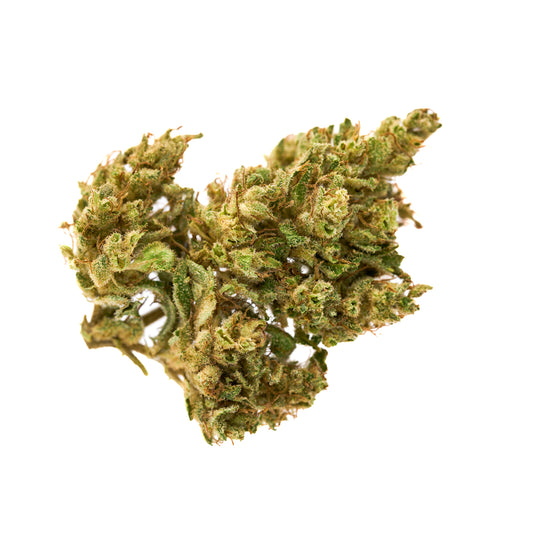
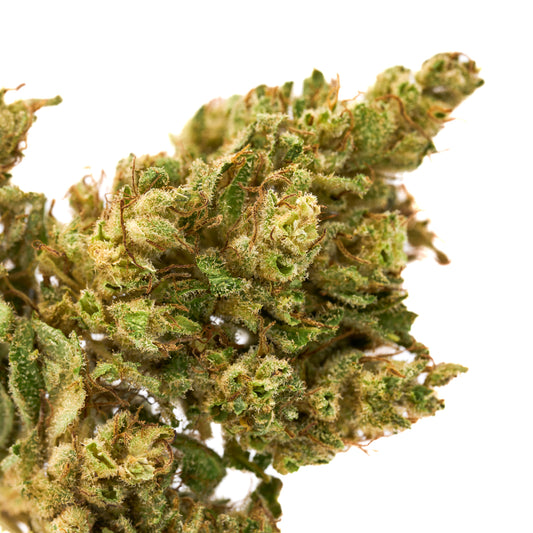
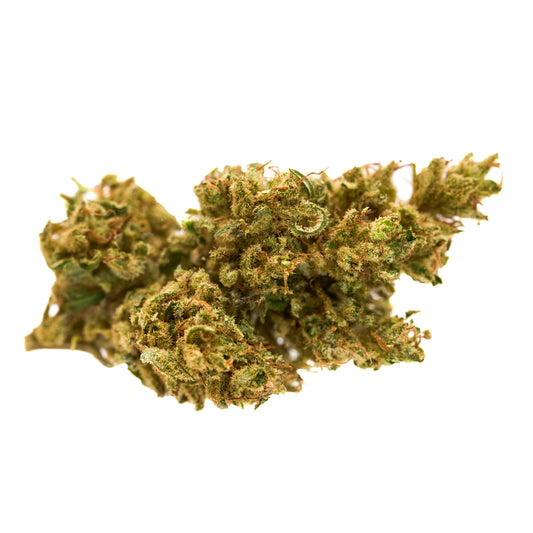
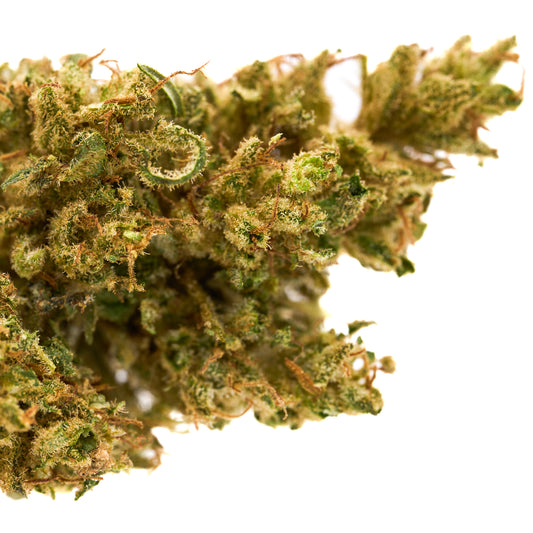
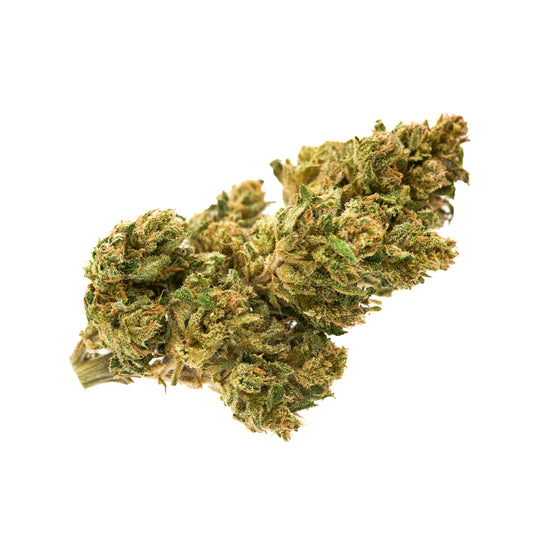
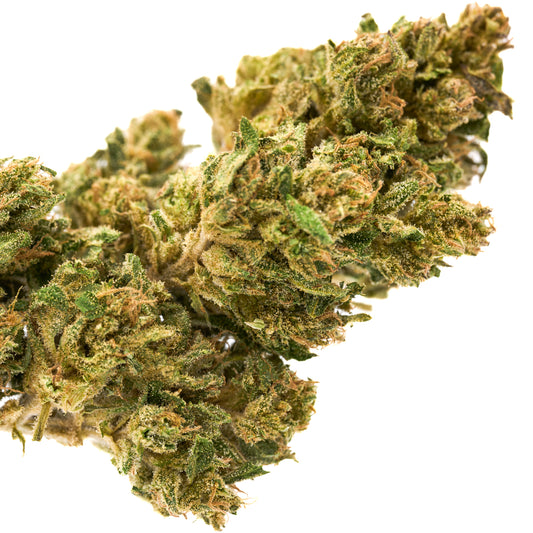



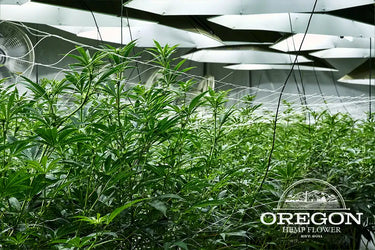

Leave a comment
Please note, comments need to be approved before they are published.